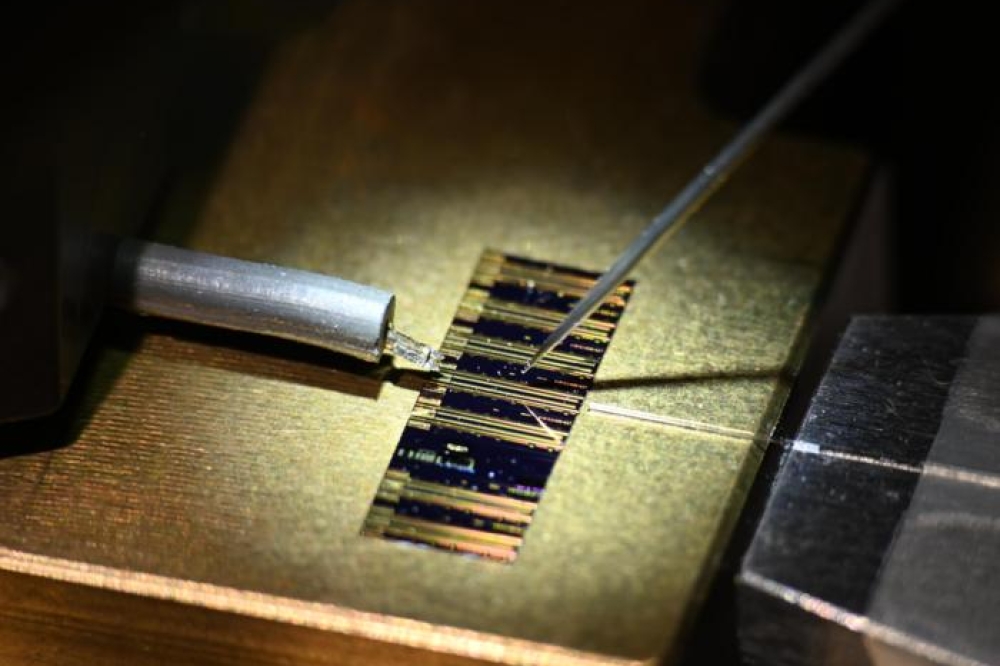GCS expands terahertz mixer diode MMIC process
Super-Low-Barrier Schottky diode suits millimeter wave mixer and multiplier applications
Global Communication Semiconductors, LLC (GCS), a III-V compound semiconductor wafer foundry based in Torrance, California, has announced that its proprietary super-low-barrier terahertz mixer diode MMIC foundry process will now be offered to address the millimeter-wave transceiver applications that require low LO drive.
"Up until now, low-barrier diode with a forward voltage (Vf) of 0.3V was mainly dominated by silicon technology. However, the drawback of silicon technology is its low electron mobility and high diode resistance, resulting in high mixer conversion loss, which limits its operation to below 6GHz. Through bandgap engineering, we have developed a GaAs-based Super-Low-Barrier (SLB) THz Schottky diode with a Vf of 0.3V that is comparable to silicon technology but offers the advantages of low series resistance and MMIC compatibility," commented Brian Ann, president and CEO of GCS.
"This latest technology breakthrough combines the advantages of low Vf and a high fco of 1.5THz, which has enabled one of our customers to demonstrate broadband MMIC mixers that cover 6-26.5 GHz and 25-67GHz bands with low conversion losses of 6dB and 8dB, respectively. The addition of this SLB diode further expands our THz diode process offering for mixer and multiplier applications where either higher linearity or low LO power is required," continued Ann.
GCS currently offers foundry services for GaN/SiC HEMT, InGaP and InP HBT, Power and Switch PHEMT processes and various optoelectronics processes such as PIN PD, APD, VCSEL and Edge-Emitting Lasers.































